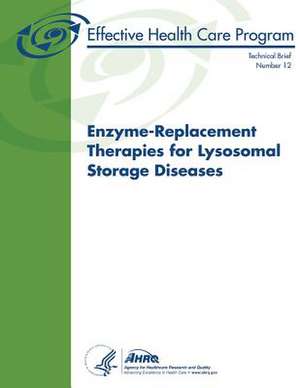Enzyme-Replacement Therapies for Lysosomal Storage Diseases
Autor U. S. Department of Heal Human Services, Agency for Healthcare Resea And Qualityen Limba Engleză Paperback
Preț: 130.18 lei
Preț vechi: 137.04 lei
-5% Nou
Puncte Express: 195
Preț estimativ în valută:
24.91€ • 26.01$ • 20.57£
24.91€ • 26.01$ • 20.57£
Carte disponibilă
Livrare economică 25 martie-08 aprilie
Preluare comenzi: 021 569.72.76
Specificații
ISBN-13: 9781483944005
ISBN-10: 148394400X
Pagini: 112
Dimensiuni: 216 x 280 x 6 mm
Greutate: 0.28 kg
Editura: CREATESPACE
ISBN-10: 148394400X
Pagini: 112
Dimensiuni: 216 x 280 x 6 mm
Greutate: 0.28 kg
Editura: CREATESPACE
